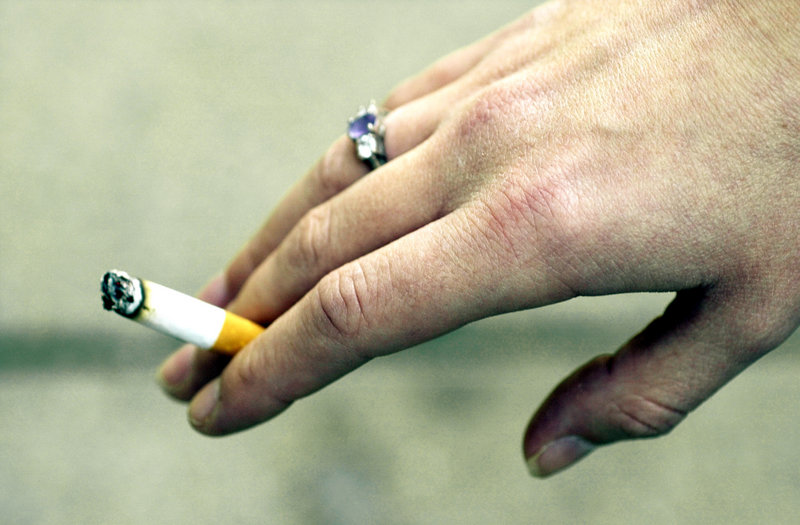MANCHESTER – Despite overwhelming evidence that smoking cessation treatment saves lives and money for residents in Maine, the state last month eliminated coverage of smoking cessation treatment for nearly all Medicaid (MaineCare) patients.
At a time when most states are working to help smokers quit, Maine is going against the tide. Maine now has the dubious distinction of joining Alabama and Georgia as one of only three states to not cover all Medicaid patients for smoking cessation medications.
This pennywise and pound-foolish move is sure to have financial consequences the administration will feel for years to come, to say nothing about the thousands of Maine people who are likely to experience the long-term health consequences of tobacco use.
Much like a school report card, the American Lung Association’s State of Tobacco Control 2010 report assigns letter grades to each of the 50 states, the District of Columbia and the federal government for specific key tobacco control policies. Maine received a D for tobacco prevention control and spending. For cessation coverage, it received a B. Cuts to the program will only put Maine in a downward spiral.
Nearly a quarter of a million Mainers smoke. Unfortunately, those who receive MaineCare are nearly twice as likely to smoke than the general population. According to the federal Centers for Disease Control and Prevention, 10.6 percent of MaineCare health care expenditures — equivalent to $216 million — are attributed to tobacco use. Put a face to those numbers, and it means a mother, a father, a friend or a child getting sick with cancer or another tobacco-related (and preventable) illness.
Without access to such preventative services, more people will end up with cancer and be diagnosed at later stages of disease, thereby increasing costs of treating the disease and lowering the chances of survival.
People who have health coverage for cessation services are more likely to quit smoking successfully. Two recent studies point to the cost savings associated with smoking cessation benefits.
A study conducted out of George Washington University found that for our neighbor Massachusetts, every dollar spent on anti-smoking programs for low-income people saved $3 in medical costs. In the first two and a half years that the coverage was implemented, researchers saw a 38 percent drop in heart attacks, 17 percent fewer emergency room visits for asthma, and a 17 percent drop in pregnancy complications due to smoking. Extrapolate those results to Maine, and we are sure to see significant savings and health benefits.
In fact, a study done by Penn State researchers found that when you add direct health care expenditures, workplace productivity losses and premature death, smoking costs Maine more than a billion and a half dollars every year. Put another way — while the average retail price of a pack of cigarettes in Maine is $6.46, the real price to society and to the state’s economy is more than $26 per pack. The state could surely find other uses for that money.
As state officials and lawmakers look for ways to save money, they should consider that, according to the same study, funding smoking cessation treatments can save Maine more than $5 million every year. That happens to be almost the total amount of savings the recently created Maine-Care Redesign Task Force is trying to find in the MaineCare program. Funding tobacco cessation treatments is an important solution in any budget crunch.
But as anyone who works in medicine can tell you, the hardest “sell” is prevention. Ironically, it is much easier to obtain money for a fancy new machine for treatment of some illness than it is to invest money to prevent the illness in the first place.
The LePage administration has made its mark. Undoing the damage before patients and the state feel the full impact of its decision is the right — and fiscally smart — thing to do.
Dr. Lani Graham is a family physician and the co-chair of the Maine Medical Association Public Health Committee. She is the former director of the Maine Bureau of Health (now the Maine Center for Disease Control).
Copy the Story Link
Send questions/comments to the editors.



Success. Please wait for the page to reload. If the page does not reload within 5 seconds, please refresh the page.
Enter your email and password to access comments.
Hi, to comment on stories you must . This profile is in addition to your subscription and website login.
Already have a commenting profile? .
Invalid username/password.
Please check your email to confirm and complete your registration.
Only subscribers are eligible to post comments. Please subscribe or login first for digital access. Here’s why.
Use the form below to reset your password. When you've submitted your account email, we will send an email with a reset code.